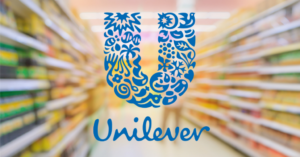
Consumer goods giant Unilever has said that the company continues to condemn the war in Ukraine, has stopped business operations in Ukraine and has suspended all imports and exports of our products into and out of Russia.
“We continue to condemn the war in Ukraine as a brutal and senseless act by the Russian state. Our business operations in Ukraine have stopped and we are now fully focused on ensuring the safety of our Ukrainian employees and their families, including helping with their evacuation where necessary, and providing additional financial support,” Unilever CEO Alan Jope said in a statement posted on the company’s website.
He said that the company has suspended all imports and exports of our products into and out of Russia, and we will stop all media and advertising spend.
“We will not invest any further capital into the country nor will we profit from our presence in Russia. We will continue to supply our everyday essential food and hygiene products made in Russia to people in the country. We will keep this under close review,” he said.
“We join calls for an end to this war and hope that peace, human rights, and the international rule of law will prevail,” he said.
Unilever brands include Lipton, Dove, Vaseline, Cif, Signal, Domestos, Rexona AXE, Chistaya Liniya, Barkhatnye Ruchki and Inmarko.
In Ukraine, the company has a tea factory in Hostomel near Kyiv, which is the scene of heavy fighting.
In Russia, it has ice cream plants in Tula Region and Omsk, tea, cosmetics and household cleaner production facilities in St. Petersburg, and a cosmetics factory in Yekaterinburg.

Ukraine in January of this year reduced the export of ferroalloys in quantity terms by 7.9% compared to the same period last year, to 41,830 tonnes.
According to statistics published by the State Customs Service, in monetary terms, the export of ferroalloys increased by 67.9%, to $79.918 million.
At the same time, the products were mainly exported to Algeria (13.68% of supplies in monetary terms), the Netherlands (13.27%) and Poland (11.01%).
In addition, in January, Ukraine imported 10,811 tonnes of these products, which is 4.5 times more compared to January 2021. In monetary terms, imports increased 4.6 times, to $30.605 million.
The products were mainly imported from Norway (53.69%), Brazil (16.60%) and Kazakhstan (9%).

Ukraine in January of this year reduced export of intermediate goods made of carbon steel in quantity terms by 27.9% compared to the same period last year, to 486,479 tonnes.
According to statistics released by the State Customs Service, in monetary terms, export of intermediate goods made of carbon steel increased by 6.1% in January 2022, to $297.675 million.
The goods were mainly exported to Turkey (23.47% of supplies in monetary terms), Italy (20.64%) and Egypt (10.42%).
In addition, Ukraine imported 2,606 tonnes of such products in the first month of the year, which is 2.9 times more than in January 2021. In monetary terms, imports increased by 7.1 times, to $1.546 million. The goods were mainly imported from the Russian Federation (100% of supplies).

The deficit of Ukraine’s foreign trade in goods in January 2022 grew by 18.8% compared to the same period in 2021, to $.22 billion with an increase in exports by 53%, to $6.03 billion, and imports by almost 49%, to $6.25 billion, according to the State Customs Service of Ukraine.
Thus, the trade turnover of Ukraine in January rose by 51% compared to January 2021 and reached $12.28 billion.
As reported, in 2021, the deficit of foreign trade in goods amounted to $5.1 billion compared to $4.72 billion in 2020. Import of goods at the end of the year increased by 35.6% compared to 2020, to $73.3 billion, export by 38.3% to $68.2 billion.